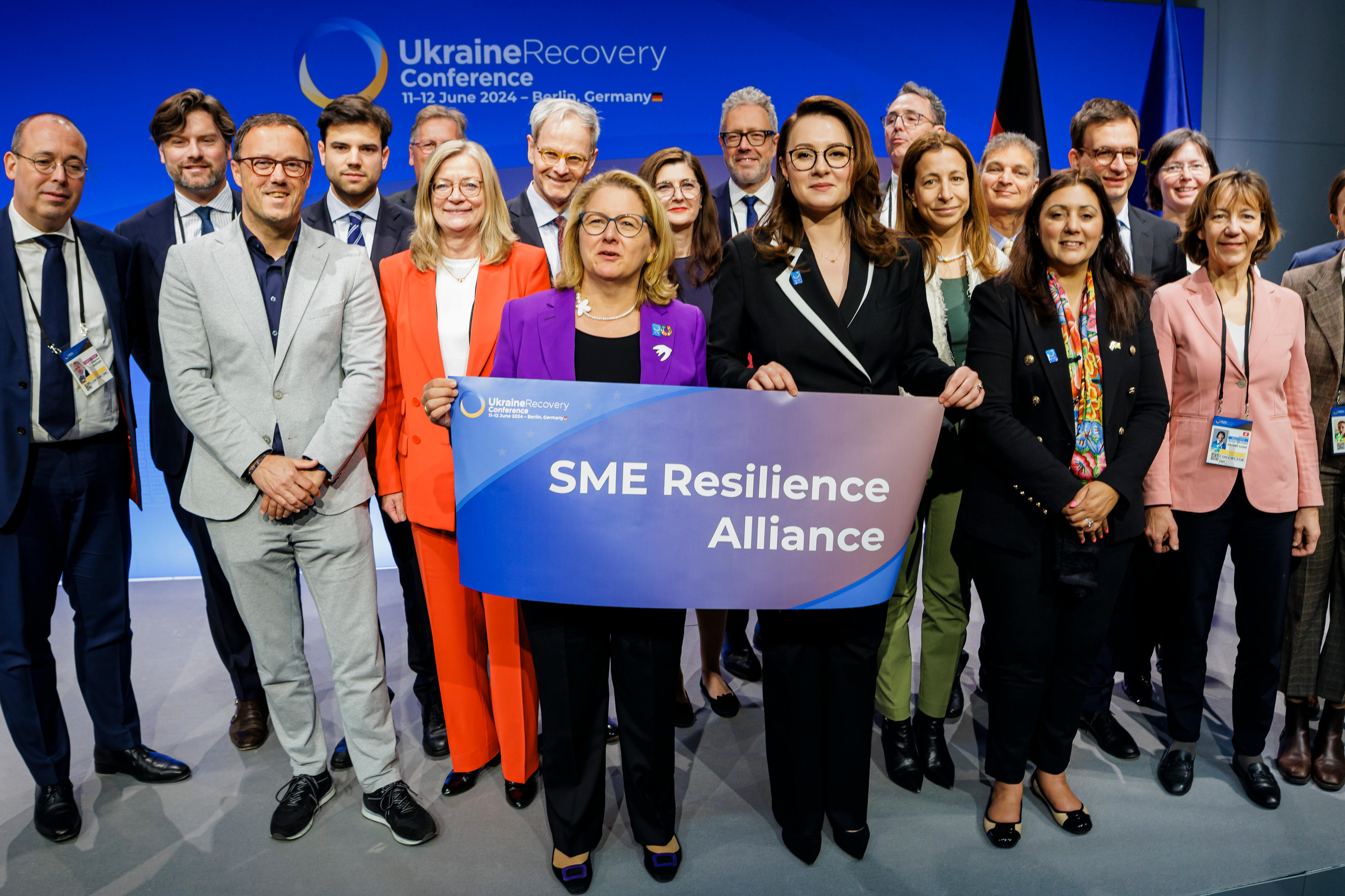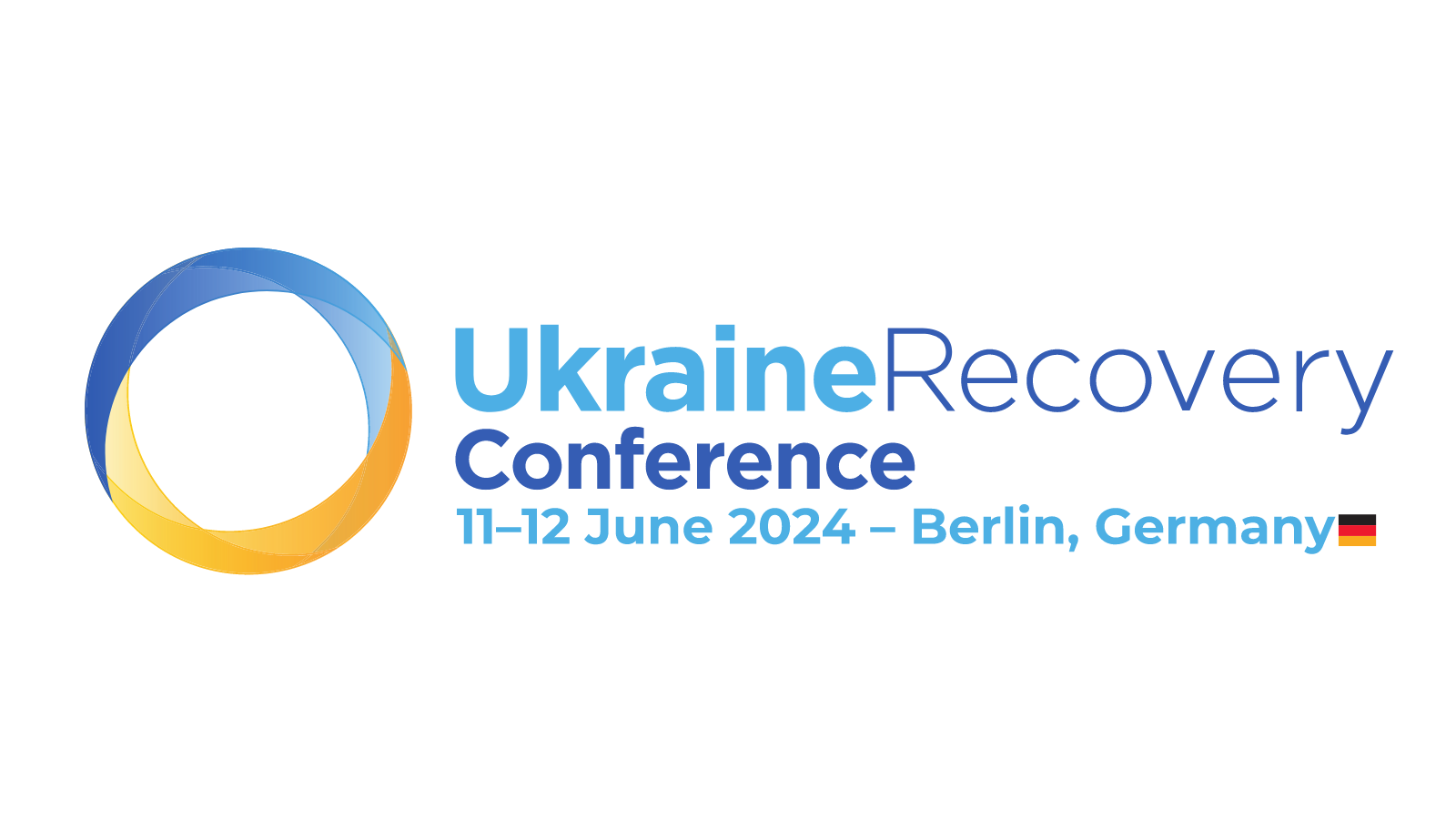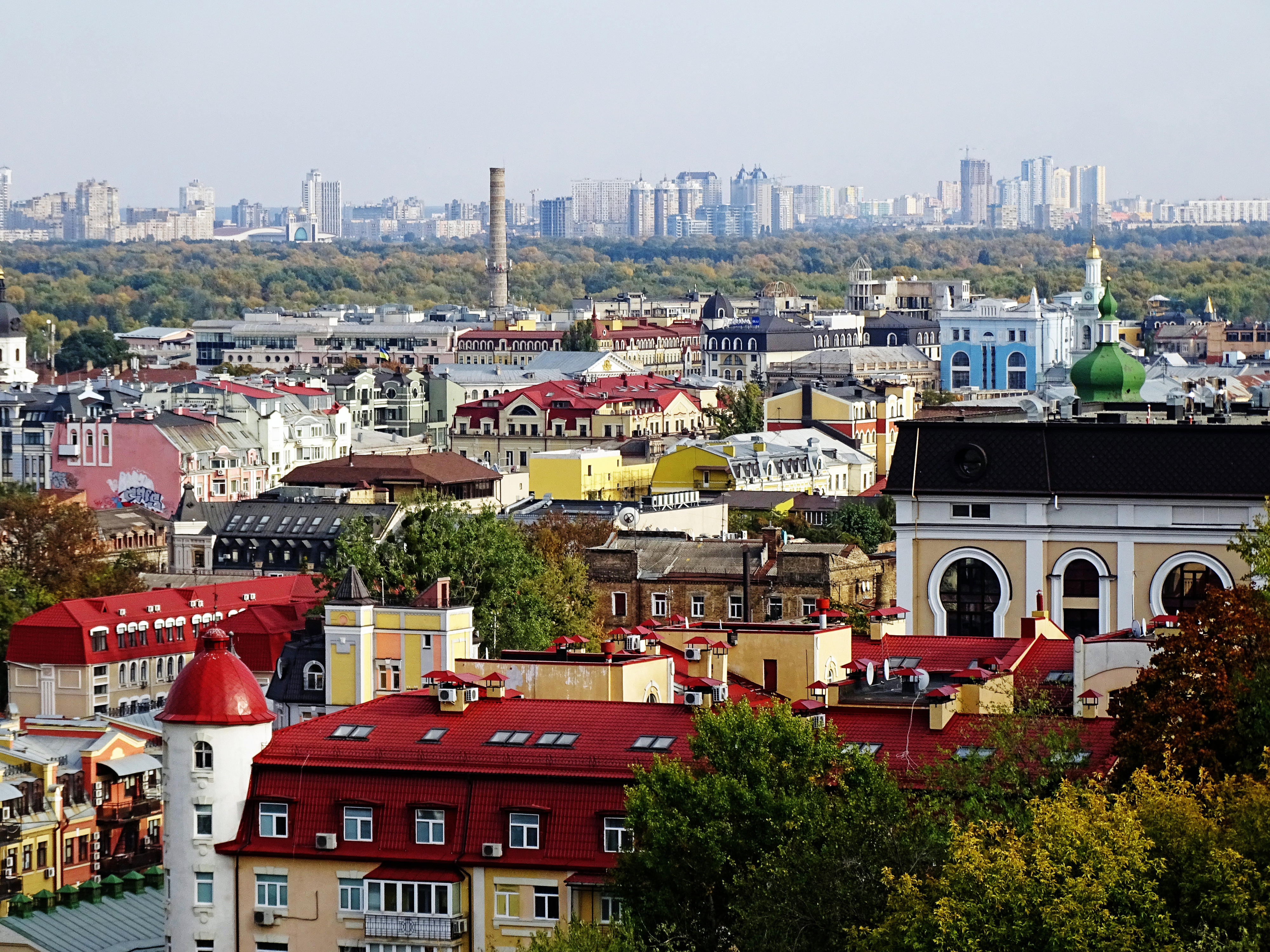Ukraine Recovery Conference
From resilience to recovery: broad international alliance for small and medium-sized enterprises in Ukraine
Press release 12 June 2024 | Today, at the Ukraine Recovery Conference (URC) 2024, Germany and Ukraine, together with 12 other countries, and 17 development institutions and international organisations, jointly launched the Small and Medium-sized Enterprises (SME) Resilience Alliance for Ukraine.
SMEs are the backbone of Ukraine’s economy. They account for two thirds of value added and provide more than 80 per cent of the jobs in Ukraine. That is why Ukraine and Germany have proposed stepping up international support for SMEs. The Alliance is aimed at making Ukraine’s SMEs more resilient in war time, and ready for reconstruction and recovery. It will mobilise support for three pillars: (1) reforming Ukrainian SME policies; (2) enhancing the institutional framework, including transforming the Ukrainian Business Development Fund into a sound and solid Ukrainian development finance institution for economic recovery; and (3) providing financing for SMEs.
All founding members are contributing to the Alliance via financial investments, policy advice or capacity building programmes. The overall commitments to the aims of the Alliance sum up to more than 7 billion euros for ongoing and new SME programmes. Of this sum, over 4.5 billion euros account for new programmes.
The major contributions come from the European Union’s Ukraine Facility, adding up to 3.9 billion euros. This includes SME access to finance instruments as part of the Ukraine Investment Framework. As part of this package, the European Bank for Reconstruction and Development will provide new financing to address the liquidity needs of Ukrainian companies and to provide tailored support for war-affected businesses and vulnerable groups such as war veterans and displaced persons. Furthermore, EU budget payments will help the Government of Ukraine in implementing SME-related reforms and in carrying out investments in financial support for SMEs.
Another part of the Alliance’s goals is to expand the Ukrainian Business Development Fund (BDF). The BDF plays a crucial role by offering financing to SMEs in Ukraine. The BDF has continued to support businesses throughout the war, helping them to stay afloat. This has enabled around 40,000 SMEs to stay in business, continue providing jobs and adapt to wartime conditions. Under the SME Resilience Alliance, a core group of international partners, including Germany, the EU, the World Bank, the Japan International Cooperation Agency and the Luxembourg Development Agency, have committed to the goal of transforming the BDF into a full-fledged National Development Institution for SMEs and making it a driving force for Ukraine’s economic recovery.
German Development Minister Svenja Schulze said, “Ukraine needs a vital economy in order to be able to prevail during the war and to build back better. It is a strong signal that 30 international partners are today launching the SME Resilience Alliance for Ukraine. One of the most effective levers for recovery is concessional financing for small and medium-sized Ukrainian enterprises. In Germany, our promotional bank KfW was invaluable in paving the way for Germany’s ‘economic miracle’ in the 1950s and 1960s. Our experience with KfW is something we can share with Ukraine in its recovery process through the SME Resilience Alliance.”
First Vice-Prime Minister and Ukrainian Minister of Economy Yuliia Svyrydenko said, “Small and medium-sized businesses are a critical part of Ukraine’s economic resilience. They also play a key role in the country’s recovery. However, medium-sized enterprises were particularly hard hit by the invasion. Therefore, I am sincerely grateful to our partners who have joined forces to support the implementation of the SME strategy 2027 and the reform process. This includes providing technical advice on regulatory frameworks, policies, and government support programs for SMEs, as well as technical assistance to enhance their skills and knowledge, especially in accessing international markets in preparation for the EU accession process. As well as supporting the strong and sustainable development of existing institutions and providing Ukrainian financial institutions with financing to support SMEs. It is a crucial contribution to Ukraine’s future and our resilience today.”
Ukrainian Minister of Finance Serhii Martschenko said, “Thanks to the long-term and effective support of the Business Development Fund from the Government of Germany and the German Development Bank KfW, it has turned into an effective institution for supporting the financing of small businesses in Ukraine. During the war, the Fund fully confirmed its mandate and purpose of activity, ensuring the launch of 17 new projects to support the financing of SMEs in just 2 years, essentially becoming the main driver of lending to the war economy of Ukraine. The Ministry of Finance of Ukraine supports the new project of the Government of Germany and KfW on institutional development of the Fund within the framework of the ‘VISION: BDF 2.0’ initiative, aimed at transforming the BDF into a full-fledged National Development Institution, which will ensure the attraction of financial aid funds to support the resilience and recovery of Ukraine’s economy. Our initiative ‘VISION: BDF 2.0’ is open to all international financial, donor and government institutions, as we strive to unite around it all our international partners who stand with us and support us for the victory and recovery of Ukraine.”
Executive Vice President of the European Commission Valdis Dombrovskis said, “Small and medium-sized enterprises are the backbone of both Ukraine’s and the EU’s economies, they play a crucial role for the resilience of Ukraine’s economy amid the war – and will be driving Ukraine’s integration into the EU and its Single Market. We stand by Ukraine in its effort to boost the role of SMEs and modernise its economy, creating the conditions for private sector-led growth that leaves no one behind.”
President of EBRD, Odile Renaud-Basso said, “Enhancing the resilience of the private sector is a key priority of the EBRD. We are supporting SMEs during war time through advisory services and financing, because they are crucial to keep the economy running, and to provide jobs and services to the population.”
List of Alliance members:
Countries/Bodies
- Austria
- Canada
- Estonia
- European Union
- Germany
- Japan
- Luxembourg
- Netherlands
- Norway
- Spain
- Switzerland
- Ukraine
- United Kingdom
- United States Agency for International Development (USAID)
Development and International Organisations and Banks
- Belgian Investment Company for Developing Countries
- Central Project Management Agency (CPVA)
- Council of Europe Development Bank (CEB)
- Deutsche Gesellschaft für internationale Zusammenarbeit (GIZ)
- European Bank for Reconstruction and Development (EBRD)
- European Investment Bank (EIB)/European Investment Fund (EIF)
- International Finance Corporation (IFC)
- International Labour Organization (ILO)
- International Organization for Migration (IOM)
- International Trade Centre (ITC)
- Japan International Cooperation Agency (JICA)
- Kreditanstalt für Wiederaufbau (KfW)
- Luxembourg Development Agency (LuxDev)
- Organisation for Economic Co-operation and Development (OECD)
- United Nations Development Programme (UNDP)
- United Nations Industrial Organization (UNIDO)
- World Bank


